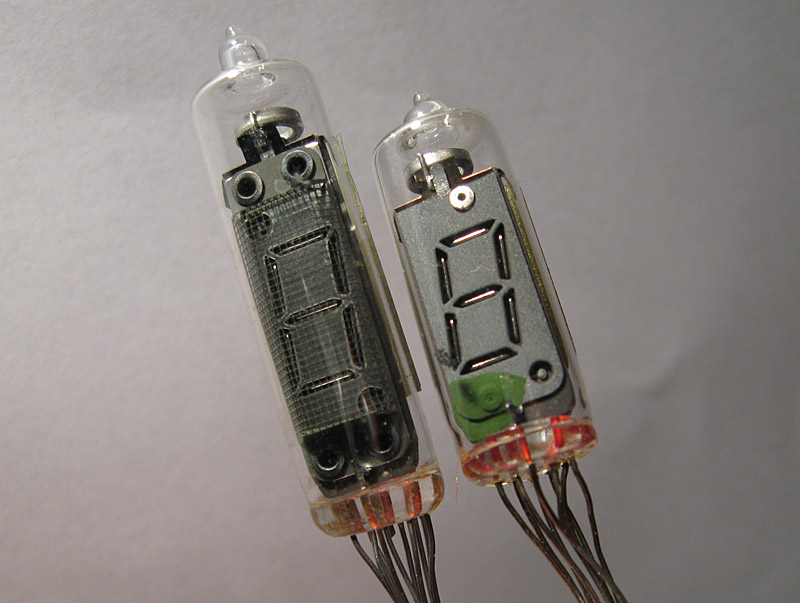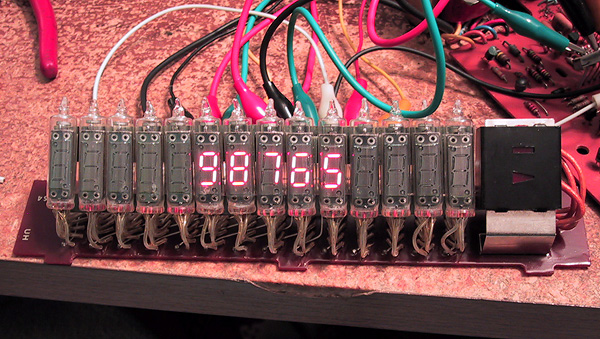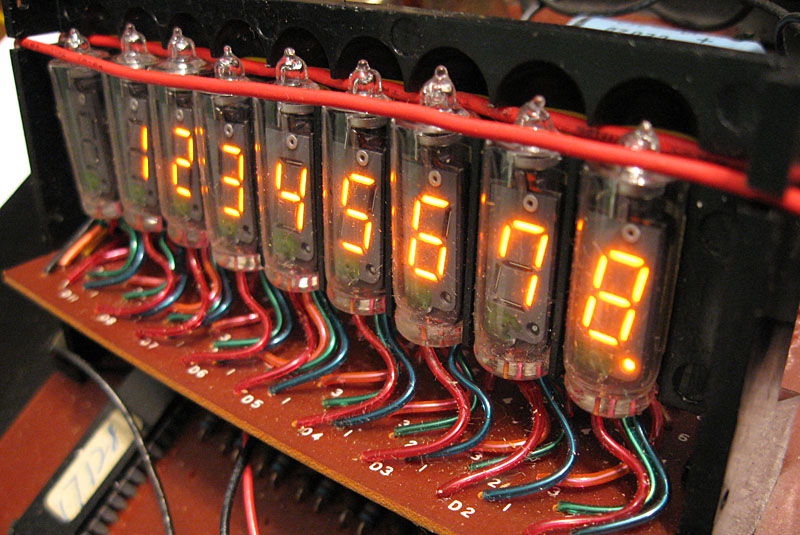| Rodan Elfin MG-17F & MG-17G Nixie Tubes | |
| Written by AnubisTTP on 2006-09-26 |
|
  |
The MG-17F represents a point of transitional evolution for neon displays; a short lived period where manufacturers began to switch to flat segmented displays, but still packaged them in tubular envelopes. Unlike other Nixie tubes, the MG-17F does not have stacks of shaped cathodes to form it's digits. Instead simple bar cathodes are arranged to form a seven segment pattern. This tube has upper and lower decimal points, allowing it to be mounted normally or with the leads exiting the top of the envelope. Despite being a transitional device, the MG-17F saw use in a number of consumer products, most likely due to lower manufacturing costs when compared to competing stacked cathode Nixie tubes.
Rodan also produced the MG-17G, a variant of this tube with smaller digits and only a single decimal point. The MG17-G lacks the front anode screen present in the MG-17F, resulting in a brighter and more visible display. The MG-17F and MG-17G were both released in 1969, and competed directly with first generation LED displays like the Monsanto MAN1.

Rodan MG-17F (left) and MG-17G tubes at rest.

14-digit calculator display with Rodan 'Elfin' MG-17F seven-segment nixies, being driven by a TI TMS-based mainboard from a Commodore C-8.

An array of 'Eightron' MG-17G tubes in a display module. The MG-17G has only a single decimal point and a reduced complexity internal construction.
 Return to Nixie & Gas Discharge Displays
Return to Nixie & Gas Discharge Displays







 Return to Nixie & Gas Discharge Displays
Return to Nixie & Gas Discharge Displays